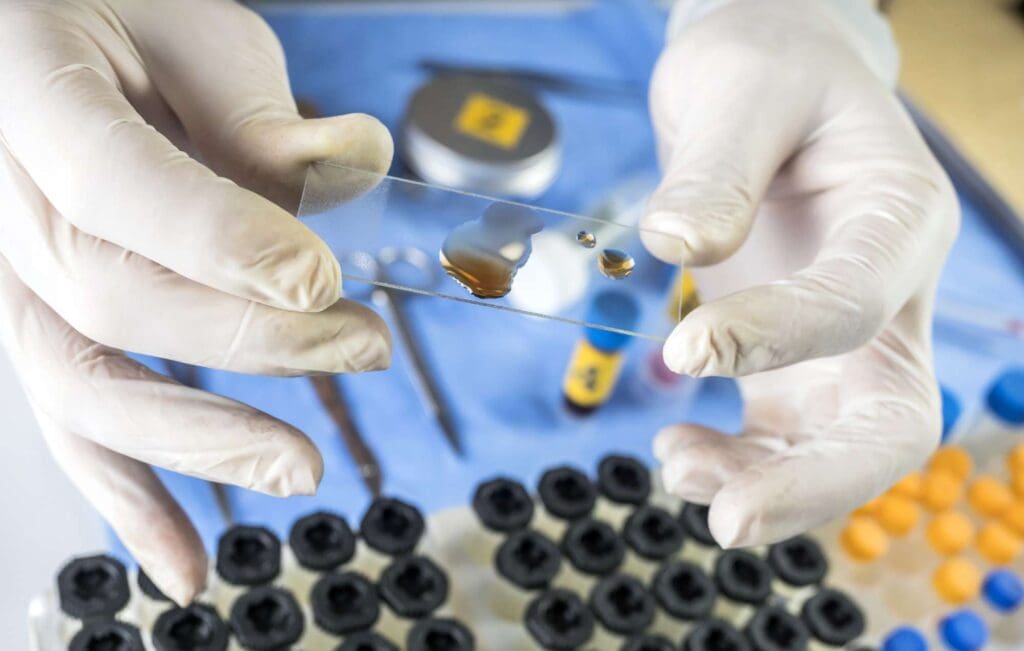Phase 4 of the Criminal Procedure (Miscellaneous Amendments) Act 2024 (“Amendment Act“), which was passed in Parliament on 5 February 2024, came into effect on 26 May 2025 to empower: (i) non-Police law enforcement agencies (“LEAs“) to investigate bail and absconding offences; and (ii) the Police to require the conduct of forensic medical examinations (“FMEs“). The remaining amendments under the Amendment Act will come into force at a later date.
Empower LEAs to Investigate Bail and Absconding Offences
The Amendment Act amends the Criminal Procedure Code 2010 (“CPC“) to provide that prescribed non-Police LEAs are empowered to investigate bail and absconding offences arising from the predicate offences under their purview which are allegedly committed by accused persons under their investigation. LEA officers may also exercise the powers of Police officers under the CPC in relation to an investigation into an arrestable case. These amendments improve efficiency, as LEAs are now empowered to investigate bail and absconding offences without Police assistance.
Empower Police to Require FMEs to be Conducted
FMEs are conducted to obtain forensic evidence (e.g. taking blood samples or deoxyribonucleic acid (DNA) swabs), which is critical for investigations, particularly those pertaining to serious sexual offences such as rape.
The Amendment Act amends the CPC to empower the Police to require an accused person to undergo an FME for the purpose of searching for a thing or evidence of a thing: (i) that is relevant to an offence that is reasonably suspected to have been committed; and (ii) the existence or absence of which on or in the body of the individual is or may be relevant to the investigation of the offence. Following the amendments:
- Offence: It is an offence if: (i) an accused person required to undergo the FME refuses to do so without reasonable excuse or otherwise hinders or obstructs the carrying out of the FME; and (ii) a person other than the accused hinders or obstructs the carrying out of the FME without reasonable excuse. The accused person or such other person shall be liable on conviction to imprisonment for a term of up to seven years and/or a fine.
- Inference: In any criminal proceeding, where it is shown that the accused person required to undergo the FME had refused to do so without reasonable excuse, the court may draw any inference as it thinks proper from the refusal, in determining: (i) whether to commit the accused for trial in connection with the crime for which he or she is accused; (ii) whether there is a case to answer against the accused; or (iii) whether the accused is guilty of the crime with which he or she has been charged. Such refusal may, on the basis of the court’s inference, be treated as, or as capable of amounting to, corroboration of any evidence given against the accused in relation to which the refusal is material.
- Force: Such force as is reasonably necessary may be used for the purpose of carrying out the FME, where: (i) an accused person is required to undergo an FME which does not involve a physical medical examination of the accused’s intimate parts, the taking of an invasive sample from the accused, the taking of a body sample from the accused’s intimate parts, or the taking of a photograph of the accused’s intimate parts; and (ii) the accused refuses without reasonable excuse to undergo such FME or otherwise hinders or obstructs the carrying out of the same.
The Amendment Act also amends the CPC to provide that the Police must not require an alleged victim to undergo an FME unless consent is obtained from the alleged victim and/or their parents or guardians (as the case may be, depending on the alleged victim’s age).
- Alternative consent: Where the Police have reasonable grounds to believe that the alleged victim is unable to give consent within a reasonable time due to any physical or mental condition whether permanent or temporary, and any delay in carrying out the FME may result in any loss, degradation or contamination of relevant evidence: (i) the alleged victim’s consent to undergo the FME is not required; but (ii) the alleged victim’s deputy or donee or parent or guardian (as the case may be) must consent.
- No consent: Where the Police have reasonable grounds to believe that any delay in carrying out the FME may result in any loss, degradation or contamination of relevant evidence, the consent of the alleged victim’s deputy, donee, parent or guardian (as the case may be) is not required if: (i) such consent cannot be obtained despite all reasonable efforts; (ii) the Police have reasonable grounds to believe that there is no such person who can give such consent; or (iii) such person is being investigated in relation to the offence committed against the alleged victim, or the Police have reasonable grounds to believe that such person has a motive to conceal the commission of the offence against the alleged victim, or such person has abstained from giving such consent. Allowing the conduct of an FME in such cases is in the interests of both the victim and the public.
Finally, the Amendment Act amends the CPC to put in place safeguards to (i) ensure that FMEs are conducted appropriately; (ii) ensure that persons subjected to FMEs are treated with sensitivity; and (iii) prevent the unauthorised distribution of materials obtained through an FME. For example:
- Qualified persons: A Police officer or a forensic specialist may carry out the FME on an individual. However, only medical practitioners or nurses may conduct FMEs involving: (i) physical medical examinations of the individual; or (ii) the taking of an invasive sample from the individual, other than the taking of a blood sample by way of pricking the individual’s finger.
- Prior satisfaction: The person conducting the taking of a body sample from an individual, and any other person giving instruction in relation to or overseeing the taking of the body sample, must be satisfied that doing so will not endanger the individual, before proceeding.
- Minimum rank: If an FME involves an intimate part of an individual, only a Police officer of or above the rank of inspector may require the individual to undergo the FME.
- Privacy, gender: If an FME carried out by a Police officer or forensic specialist involves an intimate part of an individual: (i) the FME must be carried out with such reasonable privacy measures in place as are necessary to prevent the FME from being seen by any other person (other than the person carrying out the FME, any other person giving instruction in relation to or overseeing the FME and, where the individual is an accused person, any officer escorting the individual); and (ii) if the individual is a woman, the FME may only be carried out by a woman.
- Intimate images: The Prosecution: (i) is not required to serve on the Defence a copy of any documentary exhibit consisting of any images of an individual’s genital or anal region, or a woman’s breasts; but (ii) must, if requested by the Defence, arrange for the Defence to view the documentary exhibit either at a Police station or a prescribed place.
Click on the following links for more information:
Available on the Ministry of Law (“MinLaw“) website at www.mlaw.gov.sg:
- MinLaw Press Release titled “Criminal Procedure (Miscellaneous Amendments) Bill 2024”
- Second Reading Speech by Minister for Law K Shanmugam on Criminal Procedure (Miscellaneous Amendments) Bill 2024
- MinLaw Press Release titled “Commencement of Amendments Relating to Investigation Powers under the Criminal Procedure (Miscellaneous Amendments) Act 2024”
Available on the Ministry of Home Affairs (“MHA“) website at www.mha.gov.sg:
- Second Reading Speech on the Criminal Procedure (Miscellaneous Amendments) Bill 2024 – Speech by Ms Rahayu Mahzam, Senior Parliamentary Secretary, Ministry of Health and Ministry of Law
- Second Reading of the Criminal Procedure (Miscellaneous Amendments) – Opening Speech by Ms Sun Xueling, Minister of State for Home Affairs & Ministry of Social and Family Development
- MHA Press Release titled “Commencement of Amendments Relating to Investigation Powers Under the Criminal Procedure (Miscellaneous Amendments) Act 2024”
Disclaimer
Rajah & Tann Asia is a network of member firms with local legal practices in Cambodia, Indonesia, Lao PDR, Malaysia, Myanmar, the Philippines, Singapore, Thailand and Vietnam. Our Asian network also includes our regional office in China as well as regional desks focused on Brunei, Japan and South Asia. Member firms are independently constituted and regulated in accordance with relevant local requirements.
The contents of this publication are owned by Rajah & Tann Asia together with each of its member firms and are subject to all relevant protection (including but not limited to copyright protection) under the laws of each of the countries where the member firm operates and, through international treaties, other countries. No part of this publication may be reproduced, licensed, sold, published, transmitted, modified, adapted, publicly displayed, broadcast (including storage in any medium by electronic means whether or not transiently for any purpose save as permitted herein) without the prior written permission of Rajah & Tann Asia or its respective member firms.
Please note also that whilst the information in this publication is correct to the best of our knowledge and belief at the time of writing, it is only intended to provide a general guide to the subject matter and should not be treated as legal advice or a substitute for specific professional advice for any particular course of action as such information may not suit your specific business and operational requirements. You should seek legal advice for your specific situation. In addition, the information in this publication does not create any relationship, whether legally binding or otherwise. Rajah & Tann Asia and its member firms do not accept, and fully disclaim, responsibility for any loss or damage which may result from accessing or relying on the information in this publication.









